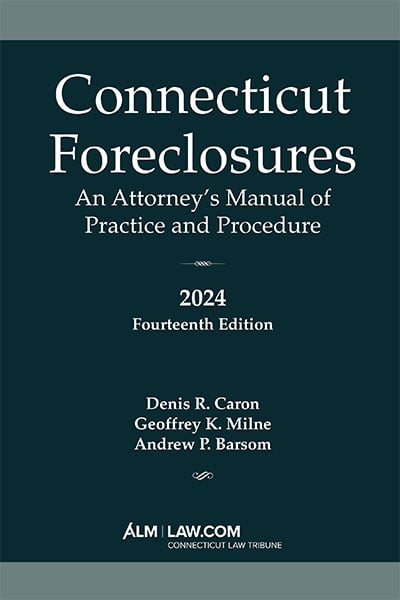0 results for 'Thomas A. Moore and Matthew Gaier'

Recent Decision on Federally Funded Health Centers
In their Medical Malpractice column, Thomas A. Moore and Matthew Gaier of Kramer, Dillof, Livingston & Moore discuss a Second Circuit decision that addressed the accrual date and equitable tolling for malpractice suits against federally funded centers, which are subject to a two-year statute of limitations.

Informed Consent and the Reasonably Prudent Patient
In their Medical Malpractice column, Thomas A. Moore and Matthew Gaier, partners at Kramer, Dillof, Livingston & Moore, write: We have heard attorneys and judges express an understanding that plaintiffs asserting informed consent causes of action are required to adduce expert testimony to the effect that a reasonably prudent person would not have undergone the procedure if fully informed of the risks and alternatives. However, recent decisions demonstrate that this is not the case.

View more book results for the query "Thomas A. Moore and Matthew Gaier"




Recent Decisions on Res Ipsa Loquitur
In their Medical Malpractice column, Thomas A. Moore and Matthew Gaier of Kramer, Dillof, Livingston & Moore discuss res ipsa loquitur, which is most often applied in medical malpractice actions that stem from injuries sustained during surgical procedures, and a recent Court of Appeals decision discussing the doctrine's applicability when the plaintiff alleged a surgeon left a wire in plaintiff's lung intentionally.

Liability Stemming From Involuntary Commitments
In their Medical Malpractice column, Thomas A. Moore and Matthew Gaier of Kramer, Dillof, Livingston & Moore review cases demonstrating that while the current version of the Mental Hygiene Law has provided vast improvements to the system for involuntarily psychiatric admissions, occasional errors continue to be made. When those wrongful admissions result from a failure to comply with the statutory procedures or when the determination to admit or retain amounts to medical malpractice, actions seeking damages will lie.TRENDING STORIES
More from ALM
- Morgan & Morgan Class Action Attorneys Detail Pathway to Success Within Cybersecurity and Data Privacy Practice 1 minute read
- Holwell Shuster & Goldberg Partners Leverage 'Hostile' Witnesses to Secure $101 Million Verdict Against Walmart 1 minute read
- Legal Speak at General Counsel Conference Midwest 2024: Mike Andolina, Partner, White & Case 1 minute read
Resources

State AI Legislation Is on the Move in 2024
Brought to you by LexisNexis®
Download Now

2024 ESI Risk Management & Litigation Readiness Report
Brought to you by Pagefreezer
Download Now

Creating a Culture of Compliance
Brought to you by Ironclad
Download Now

A Buyer's Guide to Law Firm Software
Brought to you by PracticePanther
Download Now



